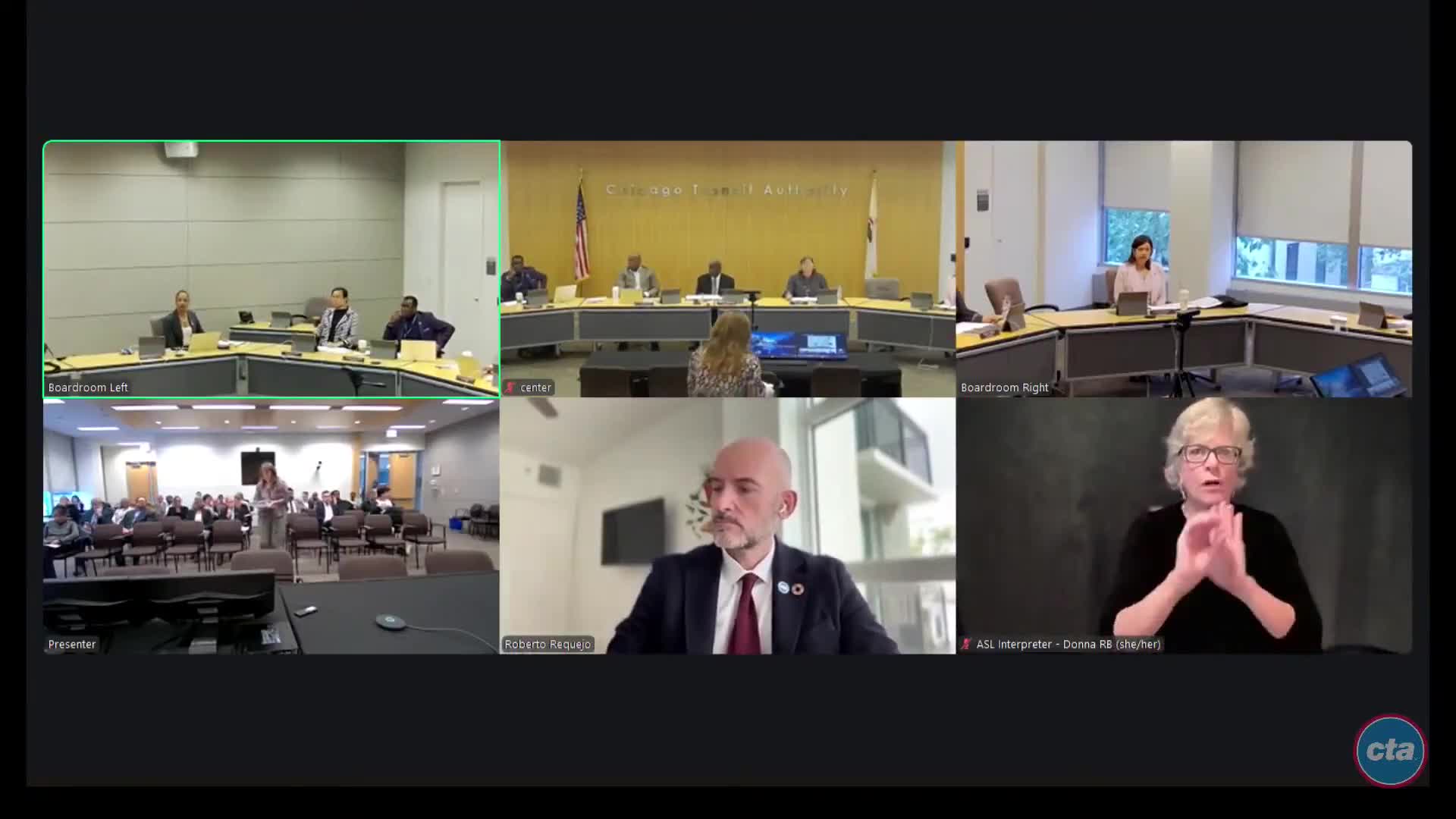CTA approves IGA with city for automated bus-lane enforcement pilot (ABLE); 30-day warning period planned
Get AI-powered insights, summaries, and transcripts
Subscribe
Summary
The CTA board approved an intergovernmental agreement with the city of Chicago to transmit validated automated bus-lane enforcement data under the city’s Smart Streets pilot. CTA will supply data from cameras; the city’s Department of Finance will review and adjudicate violations. The pilot includes a 30‑day warning period followed by one further,
The Chicago Transit Authority Board on Oct. 8 approved an intergovernmental agreement with the city of Chicago to share validated camera data from CTA’s ABLE automated bus lane enforcement systems with the city’s Department of Finance for ticketing under the city’s Smart Streets pilot.
Why the board acted: CTA staff said the ABLE cameras, procured from vendor Hayden AI under a March contract, can capture parking and blocking events in bus lanes, bike lanes and bus stops inside the pilot area. The IGA governs data transmission, initial validation by CTA’s vendor, and final review and adjudication by the city. Staff said the IGA imposes no new cost obligations on CTA; the city is responsible for ticketing and program operating costs.
What staff told the board: Kara Bader, CTA vice president of strategy and innovation, said CTA installed six camera systems and has the option to buy up to 100. She reported that, through August 2025, the city had issued about 24,000 warnings and more than 7,000 violations under the pilot; approximately two-thirds of violations were bus-lane violations and most drivers do not receive a repeat violation. Bader said the CTA will add bus-stop violation capture (which the city had not previously recorded) and that violations will include photos and a short video available on the city portal similar to red‑light/speed camera systems.
Board questions and responses: Directors asked about projected revenue and data handling. Bader said there is no solid revenue projection yet because the program is still in an early phase with a high warning-to-violation ratio and an unknown contest rate; she said the city’s ordinance allows for a revenue-sharing agreement to be negotiated later. Director Raquel asked that CTA and the city develop revenue projections as the pilot scales beyond the initial camera installations.
Operational details: Staff reported the pilot will begin the next phase the week following the meeting. When systems go live, a 30-day warning period will apply (warnings only); after that, drivers receive one additional warning before receiving a violation. The city will be the enforcing entity; CTA’s role is capture, initial vendor validation and secure data transfer via API.
Vote and next steps: The board placed the ABLE ordinance on the omnibus and approved the omnibus; staff said it will coordinate with the city on public outreach and a marketing campaign ahead of the next phase.
